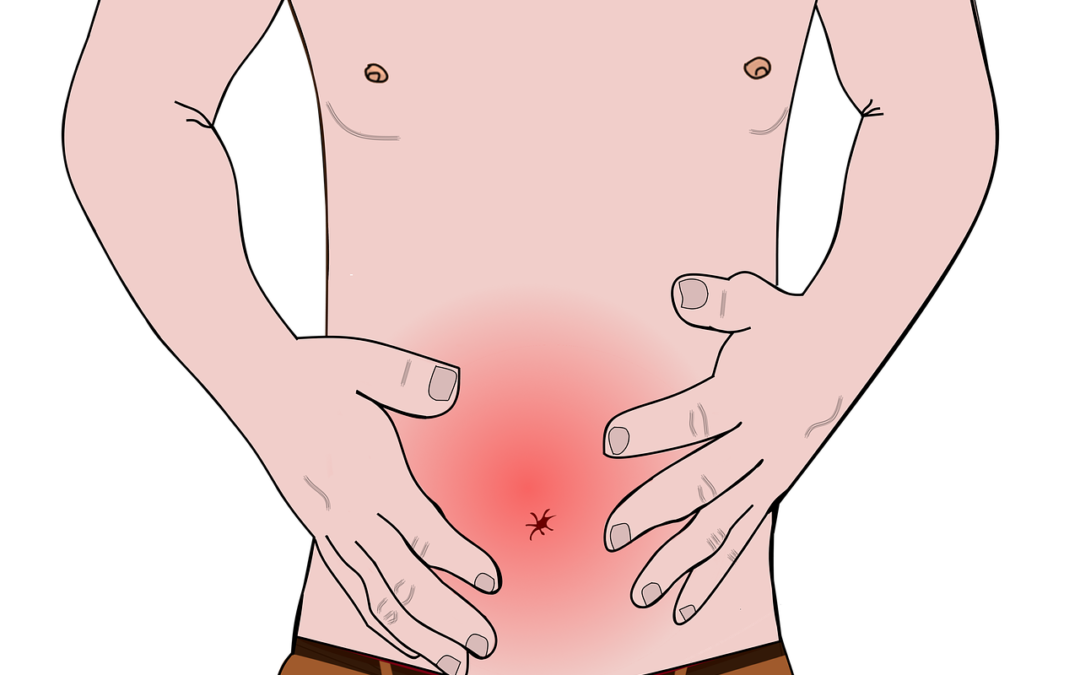
by Tanya Keam | Jan 24, 2024 | Acupuncture, Anxiety, Chinese medicine, Client information, Digestive health, Emotions, Herbal remedies, Irritable bowel syndrome, Loose stools, Nambour, Nutrition, Stress, Sunshine coast
Irritable Bowel Syndrome
Irritable bowel syndrome (IBS) is a common disorder that affects the stomach and intestines, also called the gastrointestinal tract. Symptoms include abdominal pain, bloating, cramping, gas, and diarrhoea or constipation, or both.
Only a small number of people experiencing IBS have severe symptoms, while others experience mild pain and alternation of bowel habits. So how are your insides? Worried about where the next toilet will be? Your digestion is switching from diarrhoea to constipation and you’ve tried dairy free, gluten free or the low-FODMAP diet?
Sometimes people can visit their medical physician with symptoms and either be dismissed or referred to a gastroenterologist. Sometimes people can get a parasite or gastroenteritis (infection/inflammation in the gut) from eating contaminating food/water from traveling overseas and then end up with IBS symptoms long term.
To date, the pathophysiology of IBS is still not completely understood. However, specialists are now more accepting of IBS signs and symptoms being a functional disorder with both physiological and psychosocial factors, despite x-rays, lab tests or biopsies being clear.
What might a specialist first exclude before diagnosing Irritable Bowel Syndrome?
Due to many digestive conditions having similar signs and symptoms, a specialist must first rule out other conditions such as:
- Small-bowel bacterial overgrowth
- Lactose intolerance
- Eating disorder
- Inflammatory bowel disease
- Autoimmune disease
- Coeliac disease or celiac sensitivity
- Parasites
- Infection
- Laxative use
- Microscopic colitis
- Pharmaceutical side effects
- Gastritis or Enteritis
A patient may undergo blood tests, stools tests, physical examination, colonoscopy, ultrasound or sigmoidoscopy tests and a physician will also exclude any of the above causes (1). If tests come back clear and no other gastrointestinal diseases are determined, then IBS is considered (2).
How is Irritable bowel syndrome treated ?
Doctors may treat IBS by recommending changes in what you eat and other lifestyle changes, medicines, probiotics, and mental health therapies (3).
Also:
- Increasing fibre to improve constipation
- Decreasing gas producing foods
- Following a FODMAP photocol or other dietary protocol that improves symptoms
- Mental health support
- Stress management
- Getting enough sleep
- Increasing exercise
- Drug therapy for the dominant symptoms
What does research say about other therapies such as Chinese medicine, Acupuncture and behavioural therapy?
A review of mind/body approaches to irritable bowel syndrome has suggested that alternate strategies targeting mechanisms other than thought content change might be helpful, specifically mindfulness and acceptance-based approaches (4).
Best practices in treating IBS support the idea that patients should be referred for behavioural therapy early, not just when patients have failed everything else. Ideally, consultation with a gastrointestinal psychologist would be incorporated very early into the treatment plan so that collaboration can occur between the patient, psychologist, gastroenterologist, and possibly a dietitian. IBS is a multifactorial disorder, and the field of gastroenterology is moving toward additional in-clinic assessments of mood to more comprehensively aid patients in the management of complexities associated with IBS (5).
A 2015 Australian randomised-controlled trial showed that Chinese herbal medicine may be an effective treatment in relieving IBS. The double-blinded trial was for constipation-type IBS, and it found that Chinese herbal medicine reduced symptoms, increased bowel satisfaction and stool consistency, reduced straining and hard lumpy stools, compared with placebo (6). The study also showed how quickly symptoms can improve with symptoms improving by week 8 of the trial and the herbs being well tolerated by participants.
Other research suggested by The World Journal of Gastroenterology of a meta-analysis of 6 randomised controlled trials in 2014. The review found that acupuncture clearly leads to control of IBS symptoms which is both statistically characteristic and statistically significant (7).
Moxibustion (moxa) is a technique to burn mugwort on or close to a patients skin with or without acupuncture stimulation. It is used to help relieve pain, discomfort, to encourage blood flood and alleviate other symptoms according to Chinese medicine diagnosis. A review of 20 randomised-controlled trials of managing IBS showed moxa may provide benefit to IBS patients, however further research is needed (8).
How does Chinese medicine and Acupuncture help Irritable Bowel Syndrome?
Publications of the interactions between traditional Chinese medicine and the gastrointestinal system from the years 2004 to 2021 has been widely studied, with the number of papers rapidly increasing since 2018 (9).
One of the branches of Traditional Chinese Medicine is Acupuncture, which is used to stimulate documented acupuncture points to relieve pain, treat internal organ problems, reflect on disease conditions and activate the self healing ability to keep people well.
The Acupuncturist will talk with the patient about signs and symptoms and other lifestyle or dietary factors that may be contributing to the problem. Sometimes acupuncture alone can regulate the digestive system, other times herbal medicine is prescribed alongside depending on predominant symptoms such as constipation or diarrhoea. Other symptoms are taken into account for the patients individual pattern when herbs are given.
Educating patients about lifestyle factors for managing stress is also important. We will work closely with the patient to improve their diet, reduce foods that may be contributing to IBS or other gastrointestinal problems.
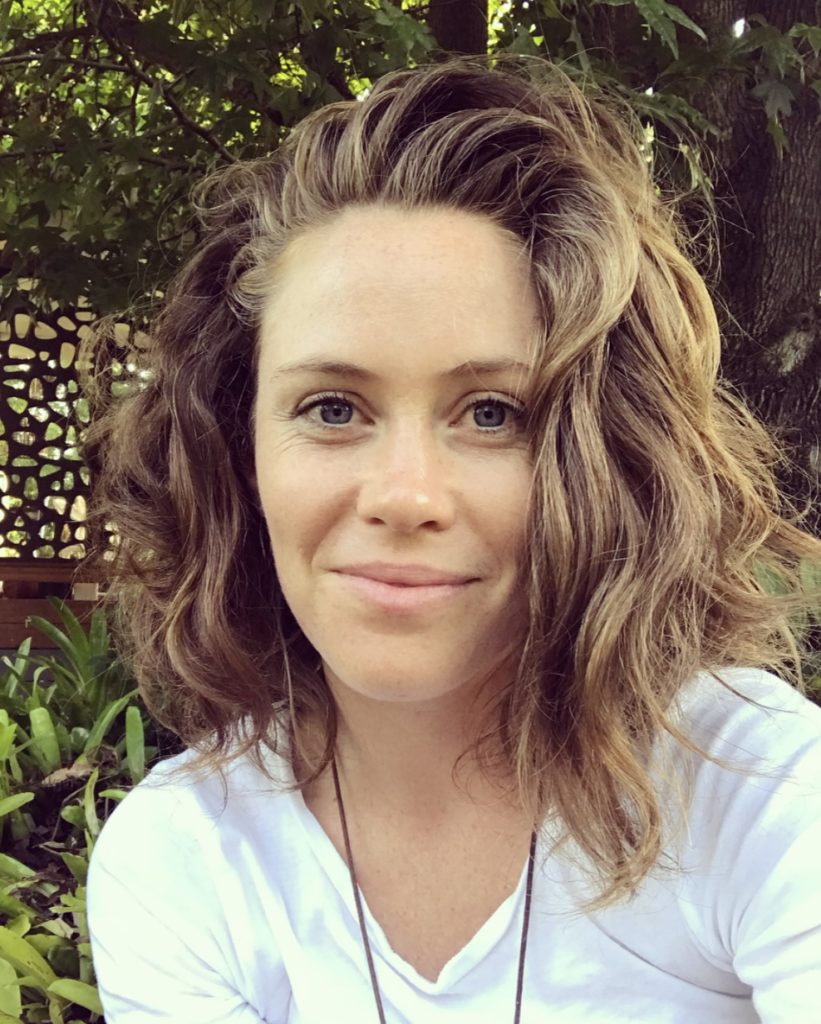 Tanya Keam is an integrative Chinese medicine Doctor and registered Acupuncturist in Nambour in the beautiful Sunshine Coast hinterland in Queensland, Australia. If you’re experiencing the above symptoms or interested in Traditional Chinese Medicine and Acupuncture treatment specifically for Irritable Bowel Syndrom, please reach out to see if Acupuncture, herbal medicine and lifestyle guidance might support you to feel better.
Tanya Keam is an integrative Chinese medicine Doctor and registered Acupuncturist in Nambour in the beautiful Sunshine Coast hinterland in Queensland, Australia. If you’re experiencing the above symptoms or interested in Traditional Chinese Medicine and Acupuncture treatment specifically for Irritable Bowel Syndrom, please reach out to see if Acupuncture, herbal medicine and lifestyle guidance might support you to feel better.
You can see Tanya’s training here, call us here, or book online here.
References
1. Mayo Clinic (2018). “Irritable Bowel Syndrome”. Available at: https://www.mayoclinic.org/diseases-conditions/irritable-bowel-syndrome/symptoms-causes/syc-20360016
2. Harvard Health Publishing (2018). ‘The gut-brain connection.’ Available at: https://www.health.harvard.edu/diseases-and-conditions/the-gut-brain-connection
3. National Institute of Diabetes and Digestive and Kidney Diseases (2024). ‘Treatment of Irritable Bowel Syndrome’. Available at: https://www.niddk.nih.gov/health-information/digestive-diseases/irritable-bowel-syndrome/treatment
4. Sebastián Sanchez B, Gil Roales-Nieto J, Ferreira NB, Gil Luciano B, Sebastián Domingo JJ. New psychological therapies for irritable bowel syndrome: mindfulness, acceptance and commitment therapy (ACT) Rev Esp Enferm Dig. 2017;109(9):648–657.
5. Riehl, M. (2018). ‘The Emerging Role of Brain-Gut Therapies for Irritable Bowel Syndrome.’ Gastroenterology & Hepatology14(7), 436-438.
6. Bensoussan, A., Kellow, J., Bourchier, S., Fahey, P., Shim, L., Malcolm, A. & Boyce (2015). ‘Efficacy of a Chinese Herbal Medicine in Providing Adequate Relief of Constipation-predominant Irritable Bowel Syndrome: A Randomized Controlled Trial’. Clinical Gastroenterology and Hepatology, 13(11), Pages 1946-1954.
7. Chao, C. & Zhang, S. (2014). ‘Effectiveness of acupuncture to treat irritable bowel syndrome: a meta-analysis.’ World Journal of Gastroenterology, 20(7), Available at: https://doi.org/10.3748/wjg.v20.i7.1871.
8. Park, J., Lee, B. & Lee, H. (2013). ‘Moxibustion in the management of irritable bowel syndrome: systematic review and meta-analysis’. BMC Complementary and Alternative Medicine, 13. Available at: https://bmccomplementalternmed.biomedcentral.com/articles/10.1186/1472-6882-13-247.
9. Yang, S. Hao, S. Wang, Q. Lou, Y. Jia, L. Chen,D. (2022). The interactions between traditional Chinese medicine and gut microbiota : Global research status trends. National Library of Medicine, 12: 1005730. Available at: https://www.ncbi.nlm.nih.gov/pmc/articles/PMC9510645/
Other articles:
1. Sebastián Sanchez B, Gil Roales-Nieto J, Ferreira NB, Gil Luciano B, Sebastián Domingo JJ. New psychological therapies for irritable bowel syndrome: mindfulness, acceptance and commitment therapy (ACT) Rev Esp Enferm Dig. 2017;109(9):648–657.
2. Thakur ER, Shapiro J, Chan J, et al. A systematic review of the effectiveness of psychological treatments for IBS in gastroenterology settings: promising but in need of further study [published online May 10, 2018] Dig Dis Sci. doi:10.1007/s10620-018 5095-3.
3. Keefer L, Palsson OS, Pandolfino JE. Best practice update: incorporating psychogastroenterology into management of digestive disorders. Gastroenterology. 2018;154(5):1249–1257.

by Tanya Keam | Jan 10, 2024 | Acupuncture, Bloating, Chinese medicine, Client information, Emotions, fertility acupuncture, Gynaecological, Herbal remedies, Hormones, Menstrual cycle, Nambour, Period pain, PMS, Premenstrual Dysmorphic Disorder, Self care, Stress, Sunshine coast, Womens health
Chinese Medicine for Premenstrual Dysmorphic Disorder
Premenstrual Dysmorphic Disorder (PMDD) is a health concern that is similar to premenstrual syndrome (PMS) but is more serious. PMDD causes severe moodiness such as feeling irritable, crying a lot, depression, anger outbursts or anxiety in the week or two before the period starts. Other symptoms may include fatigue, weight gain, restless sleep, breast tenderness, digestion changes, trouble focussing, binge eating, feeling out of control and suicidal thoughts.
About 80% of women report at least mild premenstrual symptoms, 20%–50% report moderate-to-severe premenstrual symptoms, and about 5% report severe symptoms for several days with impairment of functioning. The 5% of women with the severest premenstrual symptoms and impairment of social and role functioning often meet the diagnostic criteria for premenstrual dysphoric disorder (PMDD) (1).
Risk factors may include:
- A family history of PMS or PMDD
- Women with a personal or family history of depression, postpartum depression, or other mood disorders
- Cigarette smoking (2)
How is PMDD diagnosed?
Premenstrual Dysmorphic Disorder (PMDD) is typically diagnosed by a healthcare provider after performing a physical examination and speaking to the patient about signs and symptoms. Researchers do not know for sure what causes PMDD or PMS, however hormonal changes in the menstrual cycle each month may play a role due to the brain chemical called serotonin levels changing throughout the cycle.
Healthcare providers may also ask patients to keep track of symptoms over several menstrual cycles, or order tests to check certain things related to hormones.
What are the treatment options for PMDD?
Treatment for Premenstrual Dysmorphic Disorder (PMDD) typically involves a combination of lifestyle changes and medications. Medications used to treat PMDD include antidepressants, hormonal control pills/medications, or non-steroidal anti-inflammatory drugs. In some instances, gonadotropin releasing hormones may be given.
Natural approaches for Premenstrual Dysmorphic Disorder (PMDD) can include regular exercise and nutritional changes individualised to the patient to support serotonin, and lifestyle modifications such as sticking to a daily routine, practicing meditation and taking care of oneself, recognising emotions and managing stressful situations. Other natural remedies that have been used to treat symptoms associated with PMDD include acupuncture and herbal medicine.. Traditional Chinese medicinal herbs can be given to patients the week or two before their period is due to ease symptoms. This can be a good alternative to pharmaceuticals.
It’s important to remember than it’s normal for women and young girls to experience fluctuations in energy levels, mood or food cravings in different stages of their menstrual cycle. Iron levels for example drop once the uterus lining has shed, so it’s normal to feel lower energy before or on your period. Women live on a 28 day cycle and can sometimes even sync with the moon cycles. Whereas, men live on a 24 hour one! However when signs and symptoms are really affecting your quality of life, then it’s important to seek help.
 Tanya Keam is an integrative Chinese medicine Doctor and registered Acupuncturist in Nambour in the beautiful Sunshine Coast hinterland in Queensland, Australia. If you’re experiencing the above symptoms or interested in Chinese Medicine Premenstrual Dysmorphic Disorder treatment specifically, please reach out to see if Acupuncture, herbal medicine and lifestyle guidance might support you to feel better.
Tanya Keam is an integrative Chinese medicine Doctor and registered Acupuncturist in Nambour in the beautiful Sunshine Coast hinterland in Queensland, Australia. If you’re experiencing the above symptoms or interested in Chinese Medicine Premenstrual Dysmorphic Disorder treatment specifically, please reach out to see if Acupuncture, herbal medicine and lifestyle guidance might support you to feel better.
You can see Tanya’s training here, call us here, or book online here.
References:
- Pearlstein, T., Steiner, M. (2008). Premenstrual dysphoric disorder: burden of illness and treatment update. Journal of Psychiatry & Neuroscience; 33(4): 291–301.
- https://www.hopkinsmedicine.org/health/conditions-and-diseases/premenstrual-dysphoric-disorder-pmdd
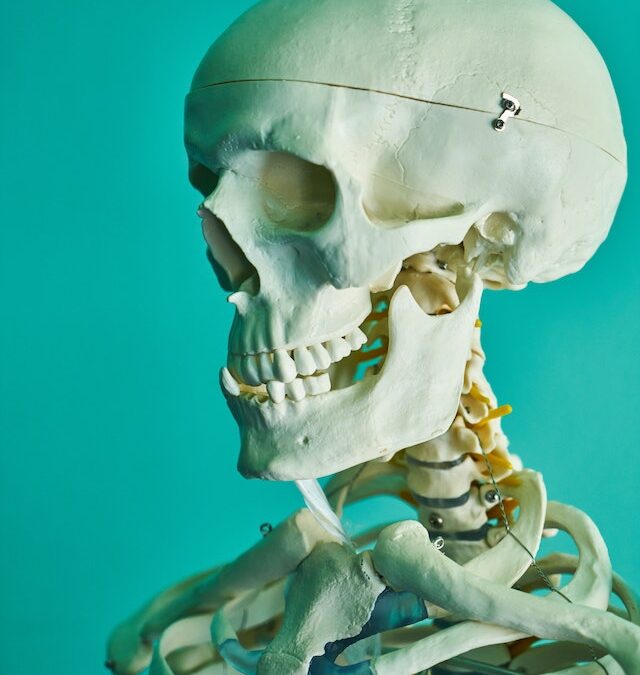
by Tanya Keam | May 10, 2023 | Acupuncture, Chinese medicine, Client information, Health practitioner, Jaw pain, Mental health, Muscle pain, Nambour, Private health, Rehabilitation, Sleep, Stress, Sunshine coast, TMJ, Wellness
Acupuncture for TMJ
What is TMJ?
TMJ stands for Temporo-Mandibular Joint. The TMJ is the joint that connects the jaw to the skull. These joints are involved in eating, facial movements and speech. Let’s get into how Acupuncture for TMJ pain can be helpful.
What is TMJ pain?
Pain that can feel grinding in the jaw, that if left untreated can lead to inability to chew properly, ear pain, migraine, headache, lack of sleep, tooth pain, lockjaw, dizziness, anxiety and joint noises such as cracking or popping of the jaw.
What are the symptoms you might experience from TMJ pain?
- Inability to chew food properly
- Ear pain or ear ache
- Insomnia
- Tooth ache
- Locked jaw
- Headache
- Migraine
- Mood dosorders
- Neck pain
- Dizziness
- Vertigo
How can TMJ be diagnosed?
Diagnostic tests may include:
- Xray
- MRI
- CT scan
- Physical exam by a general physician, physical therapist or other allied health professional if you are presenting with persistent jaw pain
Available treatment options for TMJ pain
- Exercises to relax or strengthen the muscles of the jaw
- Dental splints to reduce tooth grinding at night
- Dental alignment
- Stress management
- Soft tissue release to relax muscle tension in the jaw
- Diet changes such as increasing omega’s to reduce systemic inflammation such as arthritis, autoimmune or connective tissue conditions
- Pharmaceutical pain relief
- Herbal medicine
- Acupuncture
- Physical therapy
By the time a person seeks treatment, TMJ is often at its chronic stage so it does take time to treat it and using more than one type of approach would give a person a better outcome.
For example: managing stress so that a person does not grind their teeth at night thus reducing the need for a dental splint, improving diet to align with low to no inflammation in the body and seeking treatment from a qualified therapist to assist soft tissue release such as having acupuncture or having dental procedures to correct jaw and tooth alignment.
Acupuncture for TMJ:
Acupuncture therapy has been around for centuries and is often known to be able to treatment painful conditions. Aside from dental causes of TMJ, the majority of cases can be seen as a deep route of underling stress which therefore causes tension on the neck, jaw and temporal muscles of the skull. Exacerbated tension leads to exacerbated pain. The added benefits of chinese herbal medicines, diet and lifestyle advice alongside the acupuncture therapy, people can have lasting results in treating TMJ.
Current research findings for Acupuncture for TMJ:
- Acupuncture to have a positive effect in the treatment of pain associated with TMJ compared to the control groups (3).
- A 2010 study showed acupuncture treatment of TMJ achieved immediate effect in pain and showed ongoing positive effects after a treatment regime over 8 – 10 weeks of treatment (1).
- A 2012 study showed pain intensity was less in the trigger point acupuncture group than in the sham (fake acupuncture) treatment group, pain intensity decreased significantly between pretreatment and after 5 weeks, and trigger point acupuncture therapy may be more effective for chronic TMJ myofascial pain (2).
- A 2014 study showed laser acupuncture therapy improves the symptoms of treatment-resistant TMD. Further studies with a more appropriate designs specific for laser acupuncture are needed (5), however a review of acupuncture randomised control trials (3) found acupuncture showed promising results in the management of TMJ symptoms (4).
If you are suffering from TMJ pain please contact us today to discuss how we can help you at our Nambour Acupuncture clinic in the Sunshine Coast hinterland.
Hi, I’m T anya, an AHPRA registered Acupuncturist and health practitioner in Nambour in the Sunshine Coast hinterland, Queensland Australia. I practice Chinese medicine because its safe, logical, relevant and has effectively shown methods of natural wellness for thousands of years (read more about my training here). Life doesn’t need to be complicated and nor does the treatment approaches to get people feeling vibrant and well. I’ve seen people gain a lot from treatments, much more than just alleviating symptoms. It’s exciting to connect with people and share deep wisdom from the classics of ancient and traditional medicine, with modern protocols for todays mind-body living. See you in the clinic !
anya, an AHPRA registered Acupuncturist and health practitioner in Nambour in the Sunshine Coast hinterland, Queensland Australia. I practice Chinese medicine because its safe, logical, relevant and has effectively shown methods of natural wellness for thousands of years (read more about my training here). Life doesn’t need to be complicated and nor does the treatment approaches to get people feeling vibrant and well. I’ve seen people gain a lot from treatments, much more than just alleviating symptoms. It’s exciting to connect with people and share deep wisdom from the classics of ancient and traditional medicine, with modern protocols for todays mind-body living. See you in the clinic !
References :
- Acupuncture for Treating Temporomandibular Disorder: Retrospective Study on Safety and Efficacy: Garty Adriel, Maimon Yair, Miller Udi; Acupunct Meridian Stud 2010
- Effects of trigger point acupuncture treatment on temporomandibular disorders: a preliminary randomized clinical trial: Kazunori Itoh, Sayo Asai, Hideaki Ohyabu, Kenji Imai, Hiroshi Kitakoji; Epub 2012
- Acupuncture therapy in the management of the clinical outcomes for temporomandibular disorders A PRISMA-compliant meta-analysis: Jun-Yi Wu, MD,Chao Zhang, MD, Yang-Peng Xu, MM, Ya-Yu Yu, MD,Le Peng, PhD, Wei-Dong Leng, PhD,Yu-Ming Niu, PhD, and Mo-Hong Deng, PhD
- Acupuncture for Temporomandibular Disorders: A Systematic Review: Seung-Hun Cho KMD PhD, Wei-Wan Whang KMD PhD.
- Clinical effectiveness of laser acupuncture in the treatment of temporomandibular joint disorder: Yu-Feng Huang, Jung-Chih Lin, Hui-Wen Yang, Yu-Hsien Lee, Chuan-Hang Yu; Epub 2014
- https://www.mayoclinic.org/diseases-conditions/tmj/symptoms-causes/syc-20350941

by Tanya Keam | Jan 24, 2023 | Acupuncture, Adrenal Fatigue, Anxiety, Authentic self, Chinese medicine, Chronic fatigue, Daily Rituals, Exercise, Mental health, Nambour, Self care, Sleep, Spiritual growth, Stress, Sunshine coast
What is self care ?
You might think having a relaxing bath and exercising is self care, and it is. However self care for everyone is going to be different and there are many ways to take care our wellbeing.
Checking in with yourself to see how you are is a good place to start. Sitting down for 15 minutes, closing your eyes and focussing on your breathing will tell you if you’re conscious of your breathing or not. People often find it difficult to meditate so if this is you, just sitting or lying down and focussing on your breathing is a start. Inhale for 4 counts and exhale for 4 counts continually for 15 minutes. If this is difficult then start with 5 minutes. Does the inhalation feel the same as the exhalation? Or does one feel more restricted than the other?
Once here, ask yourself how you are.
What emotions are present right now? Have I been sleeping well lately? What has been upsetting me lately? Do I feel well in my body – my energy stamina, my digestion, do I have pain in my body? How have the last 3 months been going? The past year? How do I take care of my well being? Do I take care of myself at all? Do I reach for things to change how I feel? A glass of wine, substances? How do I handle stress?
As a Eastern medicine practitioner in the health industry I often ask people how they take care of themselves day to day and also when they aren’t feeling good.
Self care ideas you maybe haven’t thought of:
- Saying no to social events because you’re not up to it
- Calling friends to be around people you love for company
- Doing food prep so you have healthy meals through the week
- Asking a friend to help you with something
- Getting help with kids so you can have a few hours to yourself
- Seeing a therapist to talk about things
- Exercising every day to get the feel good chemicals going in your body
- Reducing your work or study load
- Taking time off work
- Resting at home – literally putting your feet up with a book
- Sleep
- Stepping away from unhealthy relationships or jobs
- Allowing yourself to cry and feel
- Magnesium bath
- Time in nature
- Taking a holiday
- Being conscious of your behaviours when you are stressed
- Prayer
- Meditation
- Doing your favourite hobbies
- Conscious breathing
- Staying off social media if peoples highlight reels are triggering
- Journaling
- Trying a new activity
- Asking for help
- Quiet days at home
- Going for a health treatment such as acupuncture to balance your nervous system
- Reducing or completely removing alcohol and substances
- Slowing your life down, simplifying things
Life can get on top of us sometimes. Checking in with yourself every day by practicing self care is loving yourself. Your self care isn’t going to look the same as someone else’s self care but know there are many ways to nourish your body, mind and spirit. Give yourself time and space to move through things that are happening in your life.
 Hi, I’m Tanya Keam, an AHPRA registered Acupuncturist and natural health practitioner in Nambour in the Sunshine Coast hinterland, Queensland Australia. I practice Chinese medicine and Acupuncture because its safe, logical, relevant and has effectively shown methods of natural wellness for thousands of years (read more about my training here). Life doesn’t need to be complicated and nor does the treatment approaches to get people feeling vibrant and well. I’ve seen people gain a lot from treatments, much more than just alleviating symptoms. It’s exciting to connect with people and share deep wisdom from the classics of ancient and traditional medicine, with modern protocols for todays mind-body living. If you need some guidance in practicing better self care get in touch or book online today.
Hi, I’m Tanya Keam, an AHPRA registered Acupuncturist and natural health practitioner in Nambour in the Sunshine Coast hinterland, Queensland Australia. I practice Chinese medicine and Acupuncture because its safe, logical, relevant and has effectively shown methods of natural wellness for thousands of years (read more about my training here). Life doesn’t need to be complicated and nor does the treatment approaches to get people feeling vibrant and well. I’ve seen people gain a lot from treatments, much more than just alleviating symptoms. It’s exciting to connect with people and share deep wisdom from the classics of ancient and traditional medicine, with modern protocols for todays mind-body living. If you need some guidance in practicing better self care get in touch or book online today.
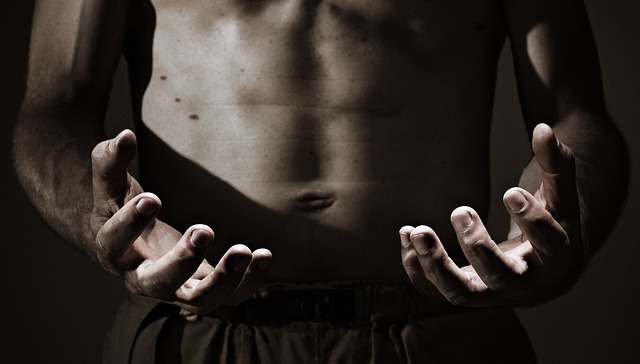
by Tanya Keam | Aug 30, 2022 | Acupuncture, Autoimmune, Chinese medicine, Client information, Exercise, Immune Support, Immune system, Inflammation, Joint pain, Nambour, Nutrition, Pain, Stress, Sunshine coast
Acupuncture for Inflammation is showing positive results in research. Inflammation refers to your body’s process of fighting against things that harm it, like infections, injuries, and toxins, in an attempt to heal itself. When something damages the cells, your body releases chemicals that trigger a response from your immune system.
Chronic inflammation can cause autoimmune disorders, such as Lupus or Chron’s, where your body attacks healthy tissue. Exposure to toxins, like pollution or industrial chemicals. Untreated acute inflammation, such as from an infection or injury.
Other factors that contribute significantly to inflammation is poor diet and stress.
What about stress?
- Working too much, over doing it
- Poor diet
- Lack of exercise
- Environmental factors
- Emotional distress
- Not taking care of yourself
- Injury, trauma – sometimes inflammation is a good thing when there’s been trauma to the body. However its important to quickly reduce the inflammation so the body can heal and get well
Try to avoid these “foods” when grocery shopping:
- Refined carbohydrates, such as white bread and pastries
- Hot chips and other fried foods (often fried in canola oil which is GMO)
- Margarine
- Soft drinks and other sugar-sweetened beverages (including some alcoholic drinks)
- Red meat and processed meat (hot dogs, sausages)
- Corn syrup
- Packaged foods with ingredient and numbers on the ingredients list you don’t understand
- Drive-through foods
Other foods that may contribute to inflammation in the body for some people may include:
- Gluten (proteins trigger the immune system to jump into action, causing inflammation). This inflammation can affect the body’s organs and soft tissue. However sometimes, its the pesticides, herbicides or other chemicals used in the processing of certain grains which can cause gluten sensitivity.
- Dairy
- Soy
- Corn
- White sugar
An anti-inflammatory diet is rich in good oils, fats, omega’s and antioxidants…
- Olive oil, flaxseed oil
- Green leafy vegetables (such as spinach, kale, and collards)
- Nuts
- Tumeric, ginger
- Fatty fish (like salmon, mackerel, tuna and sardines)
- Fruits (such as avocado, strawberries, blueberries, cherries, goji berries, pineapple, papaya)
- Raw unprocessed honey
- Coconut
- Tomato
- Bone broth
- Ghee
- A rainbow of fruits and vegetables
Try to eat as organic and local as possible. In season fruits and vegetables are also important. Certified organic can be expensive so if you cant source it, make sure you thoroughly wash your food. Or better yet start a little vegie garden and grow what you can at home.
How can Chinese medicines and Acupuncture for Inflammation help?
Acupuncture stimulates your body to help your own body to make its own medicine, like giving your internal healing response a 10-20% boost. The pins spark your resources; what nature gave you and continues to give you.
Acupuncture and the other branches of Chinese medicine (nutrition, herbs, massage, heat therapy and exercise) restore homeostasis and keep the body functioning at an optimal level. When the body is functioning at an optimal level, we’re far less likely to get sick, and far more likely to recover quickly when we do get sick, inflammatory conditions included. Read more here about Traditional Chinese Medicine as a health modality here:
Autoimmune conditions are a chronic condition so healing is a longer process, the same way it took a long time for the autoimmune markers to show up in the first place. Never the less, we can balance your immune system with acupuncture and herbal medicine, dramatically help with nutrition specific for you as an individual and guide you to manage lifestyle factors to reduce autoimmune markers or better manage the symptoms.
If you think you may have inflammation happening in your body or have been diagnosed with an autoimmune condition, please contact us today to discuss how we can help you at our Acupuncture and Chinese Medicine clinic on the Sunshine Coast. Healing is possible. Being pain free, managing pain, feeling energetic, relaxing the stress response in the body and feeling an overall wellness is possible.
 Hi, I’m Tanya Keam, an AHPRA registered Acupuncturist and health practitioner in Nambour in the Sunshine Coast hinterland, Queensland Australia. I practice Chinese medicine because its safe, logical, relevant and has effectively shown methods of natural wellness for thousands of years (read more about my training here). Life doesn’t need to be complicated and nor does the treatment approaches to get people feeling vibrant and well. I’ve seen people gain a lot from treatments, much more than just alleviating symptoms. It’s exciting to connect with people and share deep wisdom from the classics of ancient and traditional medicine, with modern protocols for todays mind-body living. See you in the clinic !
Hi, I’m Tanya Keam, an AHPRA registered Acupuncturist and health practitioner in Nambour in the Sunshine Coast hinterland, Queensland Australia. I practice Chinese medicine because its safe, logical, relevant and has effectively shown methods of natural wellness for thousands of years (read more about my training here). Life doesn’t need to be complicated and nor does the treatment approaches to get people feeling vibrant and well. I’ve seen people gain a lot from treatments, much more than just alleviating symptoms. It’s exciting to connect with people and share deep wisdom from the classics of ancient and traditional medicine, with modern protocols for todays mind-body living. See you in the clinic !
Links:
https://news.harvard.edu/gazette/story/2021/11/researchers-pinpoint-how-acupuncture-targets-inflammation/
https://pubmed.ncbi.nlm.nih.gov/24562381/
https://www.ncbi.nlm.nih.gov/pmc/articles/PMC1781596/

by Tanya Keam | Jan 6, 2020 | Acupuncture, Chinese medicine, Client information, Endometriosis, Fertility acupucnture, Gynaecological, Pain, Period pain, pregnancy, Stress, Sunshine coast, Womens health, Yin
Endometriosis and Chinese Medicine
First of all, What is Endometriosis? Endometriosis is a common condition in which the tissue that is similar to the lining of the womb grows outside of the uterus and in other parts of the pelvic cavity. Whilst endometriosis most often affects the reproductive organs, thus damaging fertility, it is also frequently found in the bowel and bladder, but has rarely been found in muscle, joints, the lungs and the brain. More than 10% of Australian women suffer from Endometriosis at some point in their life (1). Endometriosis and Chinese medicine
Some women experience Endometriosis as debilitating period pain, pelvic pain and pain during intercourse. They may need to seek medical attention to ease their painful symptoms. While others have no symptoms but may have difficult falling pregnant naturally (1, 2).
How is Endometriosis diagnosed?
Patients will generally have a pelvic examination and internal and external ultrasounds first to look at the whole lower pelvis including ovaries, fallopian tubes and uterus, however Laparoscopy (key hole surgery) is needed to confirm diagnosis.
There are multiple stages of Endometriosis Endometriosis and Chinese medicine
- Mild Endometriosis appears in small patches or surface lesions scattered around the pelvic cavity.
- Moderate Endometriosis appears as larger widespread starting to infiltrate tissue and often found on the ovaries, pouch of douglas and utero-sacral ligaments.
- Severe Endometriosis affects most of the pelvic organs, often with distortion of the anatomy and the adhesions (1).
What can cause of Endometriosis?
- In utero exposure to a non-steriodal oestrogen that was commonly given to woman (prior to 1971) as it was thought to reduce the risk of pregnancy complications
- Use of low dose contraceptives
- A family history (first generation) can make you more prone to having Endometriosis
- Irregular menstrual cycles that are heavy and prolonged
- Delayed childbearing
- Teenagers starting their period after the age of 15 years
- A high amount of physical exercise from a low teenage years
- Multiple births and prolonged lactation
- Hormonal defects such as Mullein duct defects
Conventional Treatment Options
- Your doctor typically recommends trying conservative treatment approaches first, depending on how severe your signs and symptoms are and whether you hope to become pregnant. If this fails then surgery is the next option.
- Over the counter pain medicines such as NSAIDS.
- Hormone therapy to slow endometrial tissue growth and prevent new implants of endometrial tissue. Hormone therapy is only temporary as they are suppressing hormones, so once treatment stops, your symptoms may return.
- Hormonal contraceptives – the birth control pill, vaginal rings or patches. Many women have lighter and shorter menstrual flow when they’re using a hormonal contraceptive.
- Gonadotropin-releasing hormone (Gn-RH) agonists and antagonists – These drugs block the production of ovarian-stimulating hormones, lowering estrogen levels and preventing menstruation. This causes endometrial tissue to shrink.
- Aromatase inhibitors – a class of medicines that reduce the amount of estrogen in your body.
- Progestin therapy – a variety of progestin therapies, including an intrauterine device with levonorgestrel (Mirena, Skyla), contraceptive implant (Nexplanon), contraceptive injection (Depo-Provera) or progestin pill (Camila), can halt menstrual periods and the growth of endometrial implants, which may relieve endometriosis signs and symptoms.
- Laproscopy surgery to help remove a lot of the endometrial tissue, while trying to preserve the ovaries and uterus. This is helpful if you doctors plan is to improve chances of conceiving and your diagnosis is in the severe.
- Hysterectomy – surgical removal of the uterus and cervis and sometimes the fallopian tubes and ovaries. This type of treatment is the last resort and should only be considered when the woman has already conceived children and is of age that is suitable (3).
Endometriosis and Chinese Medicine
Endometriosis is seen as a ‘blood stagnation’ pattern. When the Endometrial tissue is outside of the uterus, it forms a blockage preventing blood from exiting downward out of a woman’s body, instead it pools in the pelvic cavity which therefore causes severe pain.
The treatment of Endometriosis with Chinese medicine has a specific emphasis on looking at the whole menstrual cycle and promoting proper circulation of blood through each week of the cycle. Promoting blood flow in this way reduces pain during menstruation, reduces and prevents the endometrial tissue that builds up in the pelvic cavity and decreased inflammation, thus restoring a healthy and functioning reproductive system.
In the traditiol of Chinese medicine, different areas and prescription are used for each individual such as acupuncture treatment, moxibustion (heat therapy). herbal medicines such as Peony Root (4) that is often used for menstrual disorders, nutritional and lifestyle advice.
Advice from Endometriosis Australia
Using other health professionals such as physiotherapists, acupuncturists, herbalists, nutritionists, homeopaths and psychologists can be very helpful for women with endometriosis. You should discuss these treatments with your doctor before commencing them, or if you are on any of these treatments and are having surgery, then it is also important to tell your doctor.
Research:
- Endometriosis Australia > https://www.endometriosisaustralia.org
- Lyttleton, J. & Clavey, S. (2004). Treatment of Infertility with Chinese Medicine. UK. Elsevier.
- Endometriosis 2018. Mayo Clinic > https://www.mayoclinic.org/diseases-conditions/endometriosis/diagnosis-treatment/drc-20354661
- Takeuchi, T. Nishii, O. Okamura, T et al. Effect of Paeoniflorin, Glycyrrhizin and Glycyrrhetic acid on Ovarian Androgen Production, The American Journal of Chinese Medicine, 19(1), 1991, pp73-8) > https://www.worldscientific.com/doi/pdf/10.1142/S0192415X91000119
- Briden, L. 2018. Period Repair Manual: Every Woman’s Guide to Better Periods. Pan Macmillan Australia Pty Ltd, NSW, Australia.
If you are ready to seek support from an experienced health professional in women’s health for Endometriosis with Chinese medicine and Acupuncture, you can book an appointment for our Sunshine Coast Clinic or give us a call if you have further questions.
Phone: 0417 732 213
 Hi, I’m Tanya Keam, an AHPRA registered Acupuncturist and integrative health professional in Nambour on the beautiful Sunshine Coast, Australia. I practice Chinese medicine because its safe, logical, relevant and has effectively shown methods of natural wellness for thousands of years (read more about my training here). Life doesn’t need to be complicated and nor does the treatment approaches to get people feeling vibrant and well. I’ve seen people gain a lot from treatments, much more than just alleviating symptoms. It’s exciting to connect with people and share deep wisdom from the classics of ancient and traditional medicine, with modern protocols for todays mind-body living.
Hi, I’m Tanya Keam, an AHPRA registered Acupuncturist and integrative health professional in Nambour on the beautiful Sunshine Coast, Australia. I practice Chinese medicine because its safe, logical, relevant and has effectively shown methods of natural wellness for thousands of years (read more about my training here). Life doesn’t need to be complicated and nor does the treatment approaches to get people feeling vibrant and well. I’ve seen people gain a lot from treatments, much more than just alleviating symptoms. It’s exciting to connect with people and share deep wisdom from the classics of ancient and traditional medicine, with modern protocols for todays mind-body living.
by Tanya Keam | Mar 16, 2018 | Acupuncture, Authentic self, Buderim, Chinese medicine, Client information, Daily Rituals, DIY Wellness Tips, Emotions, Holidays, Nature, Nourishing, Rehabilitation, Rest, Sleep, Spiritual growth, Stress, Sunshine coast, Wellness
I wanted to do a post about the importance of rest as we have moved quickly into the next season. Hello windy Autumn weather! So not just the kind of rest your Sunday afternoon naps on the lounge with your pet gives you, but the kind of rest that is restorative for the long term quality of your life.
LET’S GET REAL !
Many people visit the clinic RUSHING, soldiering on and are burnt out physically and emotionally. Yes that’s totally okay because that’s why health professionals are here to help. But that calm, balanced feeling when you get off the treatment table creates space for you to look at things. If something isn’t working in your life, is making you sick or pissed off, whatever, it’s a kick up the bum to remind yourself to come to back to you and figure out where you want to be and what fills YOUR cup.

Yet we’re always planning ahead. But what about right now? To sit and feel the ocean breeze (without your phone or thinking about what errands need doing), have a nurturing bath or getting your hands creatively dirty…
The keeping up with this fast paced society that tells us we should always be doing something. “We should be busy, making more money, be attending every social event or be bettering everything comparatively”. GAHH! When was the last time you let yourself get caught in the rain? Instead of rushing to the car trying not to get wet. It’s just rain and it’s beautiful and you’re missing it because you need to be somewhere!
You are human, you’re allowed to take time out to sincerely rest your heart, mind and body. To just be. It may be a week, 2 months or even over 12 months. It doesn’t matter in the long scheme of your life how much rest you need but by golly it’s vital!
Going to a yoga class and falling asleep is probably what your body needs. Asking someone to help you out with the kids is what your sanity needs. Saying no to something that doesn’t align with your values is OK. Going for a healing health treatment isn’t self indulgent, it’s restorative.
Planning and being organised is definitely helpful in life, and there’s an element where we need to soldier on and get on with things, but oh my gosh cut yourself some slack sometimes. S L O W D O W N. Enjoy the rain once in a while. If you need to rest, then please allow yourself to because your quality of life matters more than how society tells us how we should be.
Many blessings,
Take care of you,
See you in the clinic,
TK xx
Tanya Keam Wellness is an experienced health clinic on the Sunshine Coast. Helping you to feel better in all aspects of your health and wellbeing.

by Tanya Keam | Nov 2, 2017 | Acupuncture, Anxiety, Body clock, Chinese medicine, Client information, Daily Rituals, DIY Wellness Tips, Immune system, Insomnia, Mental health, Nambour, Sleep, Stress
The impact of Insomnia on your health
Poor sleep leads to a host of concerns affecting both health and lifestyle. Such as:
- Mental health issues such as anxiety and depression
- Obesity and poor metabolism
- Heart disease
- Hypertension (high blood pressure) from the increased impact on cardiovascular health
- Lack of concentration
- Poor productivity
- Fatigue
- Low Immunity
How to manage insomnia with Chinese Medicine and natural remedies
In Traditional Chinese Medicine the 24 hour day is viewed in 2 hour blocks – such as 7-9am is when the energy of your stomach is the strongest (breakfast time!). 1-3am is liver time (when life is a bit stressful it impacts the liver so you’re awake thinking about the world’s problems at 2.30am).
If you are having trouble falling asleep, staying asleep, are restless, having unpleasant dreams or relying on sleeping tablets then consider some lifestyle adjustments listed below:
- Go to bed at the same time every night and before 10.30pm. Why? Our bodies have a sleep cycle every 90 minutes within a 24 hour day. Missing the window to fall asleep such as at 9.30pm, it is most likely that you will be awake until the next sleep cycle 90 minutes later.
- Avoid/reduce over-stimulating food such as hot peppers, alcohol, and coffee that overstimulate the nervous system causing an imbalance in the liver.
- Drink chrysanthemum tea – A light yellowish flower that has been used for thousands of years in Traditional Chinese Medicine for insomnia and liver health. Other sleepy time teas are also helpful – lavender, spearmint, hops and camomile.
- Get acupuncture to improve the quality of your sleep and general maintenance of your health and wellbeing. Acupuncture also puts our body back into the ‘rest and digest’ (parasympathetic state) where healing, proper rest and feelings of wellbeing reside. A 2016 study showed that “Acupuncture compared to sham/placebo and pharmacotherapy showed statistically significant results in a systematic review for sleep quality in people with insomnia, with further studies need to support the efficacy of acupuncture for sleep”.
- Herbal medicine prescribed by a registered practitioner. Herbs can be very powerful sleep aids that don’t tend to have the same issues with side effects as more conventional pharmaceuticals.
- Remove electronics from your room, as well as turning off bright lights such as the blue light on your phone/ipad 1 hour before bed.
- Do regular exercise, both high intensity and low impact. Preferably in the morning as afternoon evening exercise can keep you awake from all of the endorphins flowing. Sunshine in your eyes also activates Melatonin (a hormone that regulates sleep and wakefulness).
- Try a mediation and/or yoga class to bring awareness to your self. Both are fantastic for clearing your head and breathing into your abdomen – it will help bring your attention away from anxious thoughts. Both are considered “a practice”, meaning you make them a regular part of your life.
- Avoid icy cold drinks. According to Traditional Chinese Medicine your body has to work extra hard to heat up the icy cold water you are drinking, which is also over-stimulating your body to cause you to stay awake.
- Walk around barefoot will naturally get you feeling grounded and reconnects you with yourself. In Chinese Medicine, massaging the meridian points on the feet are correlated with sleep.
- Write down your thoughts/to-do lists before bed or earlier on in the day so that if you do wake up during the night, your mind doesn’t automatically start thinking about all the things that need doing the next day, week, month.
- Clean your sleep environment – declutter, dust and dirt removal, clean bed linen regularly and don’t sleep with your pets. Cats are known for running around the house at 2am!
- Manage other health concerns – sleep disturbances due to pain, itching, asthma or other breathing disturbances are not considered true insomnia. These issues must be treated to allow a restful night’s sleep.
 Hi, I’m Tanya, an Acupuncturist and Chinese Medicine practitioner in Nambour on the Sunshine Coast, Queensland Australia. I practice Chinese medicine because its safe, logical, relevant and has effectively shown methods of natural wellness for thousands of years (read more about my training here). Life doesn’t need to be complicated and nor does the treatment approaches to get people feeling vibrant and well. I’ve seen people gain a lot from treatments, much more than just alleviating symptoms. It’s exciting to connect with people and share deep wisdom from the classics of ancient and traditional medicine, with modern protocols for todays mind-body living. See you in the clinic !
Hi, I’m Tanya, an Acupuncturist and Chinese Medicine practitioner in Nambour on the Sunshine Coast, Queensland Australia. I practice Chinese medicine because its safe, logical, relevant and has effectively shown methods of natural wellness for thousands of years (read more about my training here). Life doesn’t need to be complicated and nor does the treatment approaches to get people feeling vibrant and well. I’ve seen people gain a lot from treatments, much more than just alleviating symptoms. It’s exciting to connect with people and share deep wisdom from the classics of ancient and traditional medicine, with modern protocols for todays mind-body living. See you in the clinic !
For more information about how I can assist your health and manage insomnia with Chinese medicine, you can contact me or you can now book online.
Research:
- JL Shergis, X Ni, M L.Jackson et al. A systematic review of acupuncture for sleep quality in people with insomnia, Complementary Therapies in Medicine, Vol 26, June 2016, p 11.20.
- Gao, Xiyan, Cuixiang Xu, Peiyu Wang, Shan Ren, Yanli Zhou, Xuguang Yang, and Ling Gao. “Curative effect of acupuncture and moxibustion on insomnia: a randomized clinical trial.” Journal of Traditional Chinese Medicine 33, no. 4 (2013): 428-432.

by Tanya Keam | Apr 19, 2017 | Acupuncture, Authentic self, Chinese medicine, Client information, Daily Rituals, DIY Wellness Tips, Emotions, Exercise, Exercise routine, Fitness, Holidays, Joint pain, Mental health, Motivation, Muscle pain, Nambour, Nature, Nourishing, Rehabilitation, Stress, Sunshine coast, Travel, Wellness
How many types of exercises can you list? Tonnes right?
Walking, jogging, weight training, pilates, swimming, yoga, boxing, martial arts, trekking, tennis, snowboarding, gymnastics, basketball, crossfit.. the list goes on!
Who else gets bored at the gym? Have you ever wanted to try a new type of exercise or are you sick of the same environment where you have been exercising? it can lead to lack of motivation for sure!
My general fitness routine consists on swimming, running, yoga and a bit of resistance training. Yet with these 4 I was bored and felt unmotivated to get out there. So, I decided to change things up. I’ve been to the Himalayan Mountains and one trek was a 10km return at 2,828 meters, so looking more close to home I recently climbed a mountain in the Glasshouse Mountains that I hadn’t already climbed. The mighty Mount Beerwah at 556 meters (1,824 ft), the highest of the 10 volcanic plugs in the region, and more like 2 hours, not 10! It had recently re-opened in January 2017 after being closed and doesn’t cost anything – bonus!
The climb wasn’t about how many laps I could swim or what my pace was in running, it was about trying something new, getting outside in the sunshine and fresh air, but most importantly to challenge myself as it’s a steep climb. Oh and don’t let age define what you can and cannot do. I passed a 70 year old couple on the mountain, taking it slow but doing it! I must advise, if you are new to mountain climbing or bush walking then start with a smaller mountain like Ngun Ngun or Mount Coolum that are very popular to climb on the Sunshine Coast.
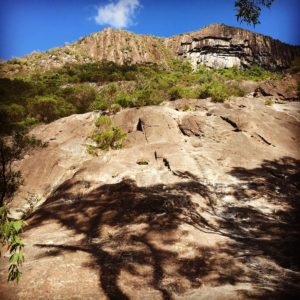 What did I get out of the climb? First of all, 2 hours of fresh Autumn crisp air, sunshine sunshine sunshine, elements of conquering fear when I thought I couldn’t climb any further as my legs were jelly and the top seemed so far away. I also had such a clear head space – I wasn’t thinking about last week or tomorrow, I was right there trying to find the next step to go higher while breathing heavily. Reaching the summit was tough but I did it and felt stoked with my achievement. Coming down was quicker and lots of sliding. Thank god I had good trekking shoes on to grip the rock face, and I was wearing gloves to protect my hands! At the bottom, I ended up with ripped pants and a few cuts but god did I feel on top of the world! I conquered the mother of mountains but also myself !
What did I get out of the climb? First of all, 2 hours of fresh Autumn crisp air, sunshine sunshine sunshine, elements of conquering fear when I thought I couldn’t climb any further as my legs were jelly and the top seemed so far away. I also had such a clear head space – I wasn’t thinking about last week or tomorrow, I was right there trying to find the next step to go higher while breathing heavily. Reaching the summit was tough but I did it and felt stoked with my achievement. Coming down was quicker and lots of sliding. Thank god I had good trekking shoes on to grip the rock face, and I was wearing gloves to protect my hands! At the bottom, I ended up with ripped pants and a few cuts but god did I feel on top of the world! I conquered the mother of mountains but also myself !
Soaking in an epsom salt bath that night as I knew I would be sore from using VERY different muscles that I had been using, all I could think of was what I could do next to add to my fitness regime and to challenge myself. What did I do? I looked for a bigger mountain – Mount Warning at 1,156 meters! Then I started planning my next break to go snowboarding. Why? Because I haven’t done it and life is about experiences!
So if you are feeling unmotivated with doing fitness and then feel guilty for not doing it, try something new, especially something outdoors. Mountain climbing, a game of tennis, join a team sport or a outdoor bootcamp. Just try it. Trust me, you will love it!
TK xx
Tanya Keam Wellness is an experienced health clinic in Nambour on the Sunshine Coast. Helping you to feel better in all aspects of your health and wellbeing.
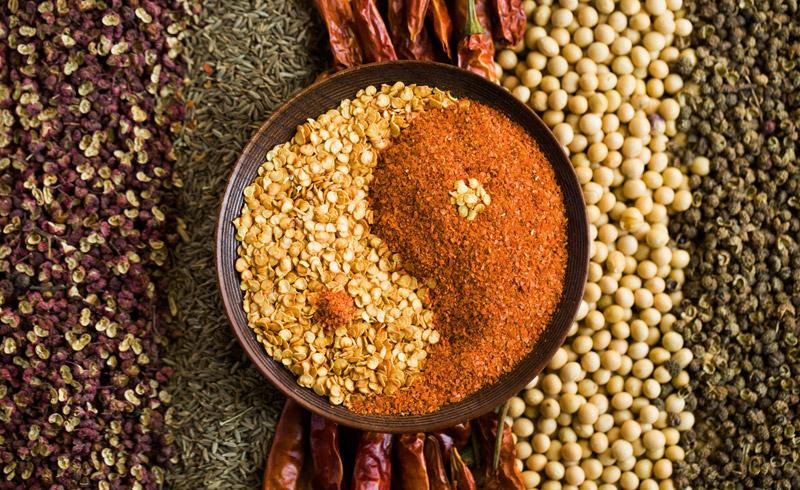
by Tanya Keam | Mar 22, 2017 | Acupuncture, Chinese medicine, Client information, Daily Rituals, Deficiency, DIY Wellness Tips, Emotions, Fertility, fertility acupuncture, Food, Herbal remedies, Hormones, Menstrual cycle, Mental health, Nambour, Nourishing, Nutrition, pregnancy, Stress, Sunshine coast, Wellness, Womens health, Yin
Have you heard of Yin and Yang?
In Chinese philosophy, yin and yang describe how seemingly opposite or contrary forces may actually be complementary, interconnected, and interdependent in the natural world, and how they may give rise to each other as they interrelate to one another. Many tangible dualities (such as light and dark, fire and water, expanding and contracting) are thought of as physical manifestations of the duality symbolized by yin and yang.
Yin qualities include:
Darkness, moon, feminine, shade, quiet, inward
Yang qualities include:
Light, sun, masculine, brightness, loud, outward
Example include:
Night (yin) and day (yang)
Yoga exercise (yin) and boxing exercise (yang)
Yin represents the energy that is responsible for moistening and cooling bodily functions. When this energy is depleted your body begins to show signs of “heating up”. This is not a true heat such as a fever, but rather a lack of the moistening and cooling functions that are necessary to maintain a healthy balance.
Women are more yin, while men are more yang – for example yin is all of the fluids in the body for women (breast milk, menstruation, vaginal discharge/lubricant) – men don’t have this. Men do have some yin qualities, as well as women having some yang qualities.
This post is focused on yin foods, thus nourishing the body and rebalancing conditions. These can include dry skin, menopausal hot flushes, tendon and ligament tightness or flaccidity, vaginal dryness, lack of breast milk production, low libido, insomnia, feeling low, scanty menstruation, hot hands and feet, constipation, dull headaches or anxiety.
Why is your yin imbalanced? Well, lots of reasons – genetics, age, stress on the body, trauma, blood loss, excess sexual activity, recreational drug use, too many yang hot foods, poor diet and lifestyle to name a few.
Nutrition is a simple way to balance yin and yang. Yin foods are cool and expanding; Yang foods are warm and contracting. Think of a shell of iceberg lettuce (Yin), and now a chunk of beef steak (Yang), and you will instantly recognise this meaning.
Foods to nourish Yin include:
- Grains: barley, millet
- Vegetables: alfalfa sprout, artichoke, asparagus, kelp, mung bean sprout, pea, potato,seaweed,string bean, sweet potato, tomato, water chestnut, yam, zucchini
- Fruit: apple, apricot, avocado, banana, lemon, lime, mango, mulberry, pear, persimmon, pineapple, pomegranate, watermelon
- Beans: adzuki, black beans, black soya, kidney, lima, mung
- Bean Products: tofu
- Nuts and seeds: coconut milk, sesame seed, black sesame seed, walnut
- Fish: fish in general but especially clam, fresh water clam, crab, cuttlefish, oyster, octopus, sardine
- Meat: beef, duck, goose, pork, pork kidney, rabbit
- Dairy: cheese, chicken egg, cow’s milk, duck egg
- Herbs and spices: marjoram, nettle
- Oils and condiments: honey, malt,
Common supplements: Ginseng, royal jelly
Examples of every day foods that can be used to build yin, include:
- Fruit smoothies with honey and banana or a fruit salad
- Fish dishes with coconut milk
- Omelettes with cheese
- Asparagus and egg salads with sesame seeds
- Tacos made with Kidney beans and topped with a small amount of cheese
- Baked Potato stuffed with tofu with soya sauce and sesame seeds.
- Pork and apple dishes
- Miso soup with tofu and seaweed
Foods to avoid:
- Stimulating foods such as the following will only further deplete yin: caffeine, alcohol, sugar and strongly heating, pungent spices.
Note: Like yin tonifying herbs, yin building foods have a tendency to congest the digestive organs and promote stagnation if large amounts are consumed. It is therefore important to consume small quantities frequently rather than large helpings irregularly. Such as a large portion if a fish coconut curry late at night is not ideal as it will sit in your stomach, stagnate and not digest properly before bed. Thus a small portion between 5-6pm is more ideal as there is more time before you go to bed to digest it.
Also, It’s not to say that yang foods you already consume such as roast chicken, other types of fish, coffee, tea, black pepper etc are to be completely avoided. Remember yin and yang balance each other out, are contrary forces that are actually complementary, interconnected, and interdependent of each other.
Other yin tips: meditate; eat more fresh fruit and salads; drink more water, teas and juices; wear pastel colors; wear loose, flowing clothes; stretch; get out into nature; listen to relaxing music; light candles at night.
Take care of you, see you in the clinic,
TK xx
Tanya Keam Wellness is an experienced health clinic in Nambour on the Sunshine Coast. Helping you to feel better in all aspects of your health and wellbeing.

 Tanya Keam is an integrative Chinese medicine Doctor and registered Acupuncturist in Nambour in the beautiful Sunshine Coast hinterland in Queensland, Australia. If you’re experiencing the above symptoms or interested in Traditional Chinese Medicine and Acupuncture treatment specifically for Irritable Bowel Syndrom, please reach out to see if Acupuncture, herbal medicine and lifestyle guidance might support you to feel better.
Tanya Keam is an integrative Chinese medicine Doctor and registered Acupuncturist in Nambour in the beautiful Sunshine Coast hinterland in Queensland, Australia. If you’re experiencing the above symptoms or interested in Traditional Chinese Medicine and Acupuncture treatment specifically for Irritable Bowel Syndrom, please reach out to see if Acupuncture, herbal medicine and lifestyle guidance might support you to feel better.












